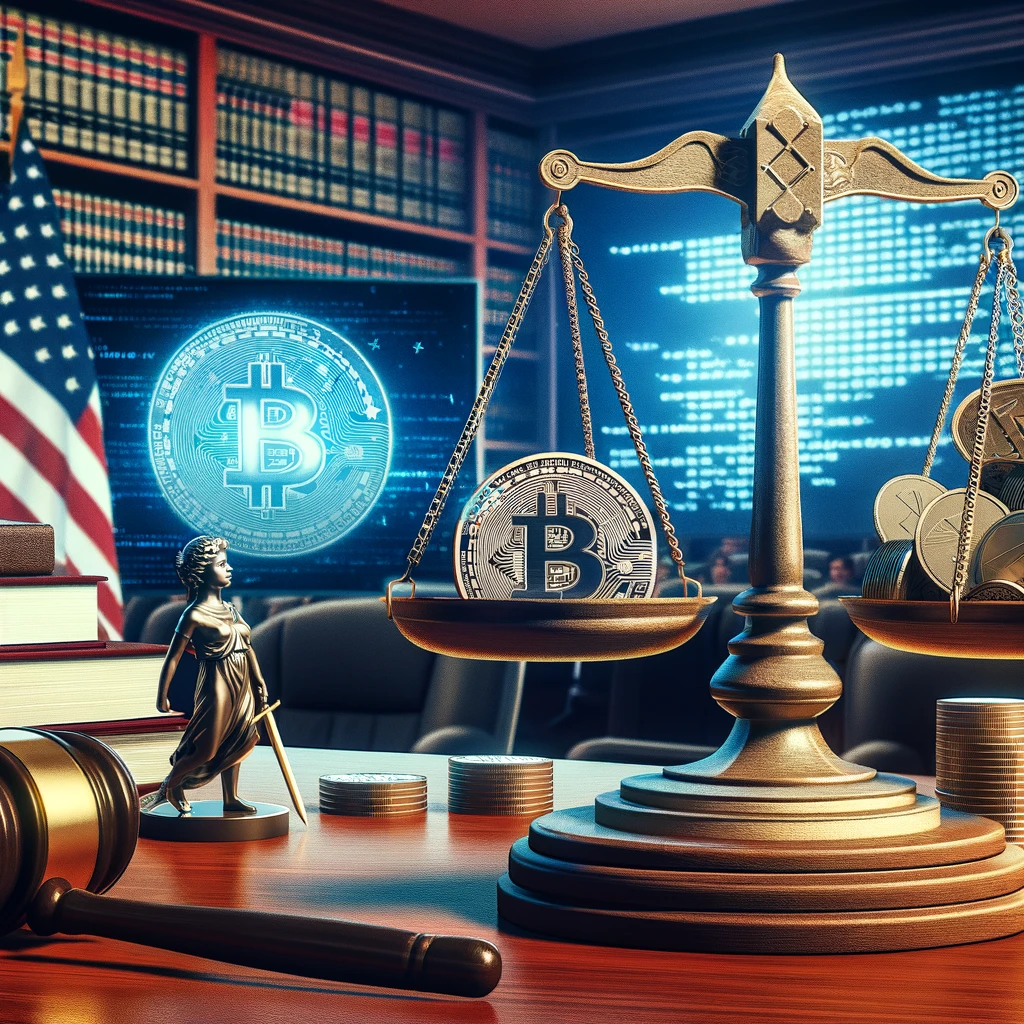In a recent decision that underscores the complexities of navigating legal challenges within the cryptocurrency industry, Terraform Labs has received the green light from a U.S. bankruptcy court to engage the services of the global law firm Dentons.
The development comes amid Terraform’s ongoing battle with the U.S. Securities & Exchange Commission (SEC), further highlighted by the firm’s bankruptcy status and the intricate dance of legal and financial strategy that has unfolded as a result.
Court sanctions Dentons engagement
On Tuesday, U.S. Bankruptcy Judge Brendan Shannon presided over a hearing in Wilmington, Delaware, where he endorsed Terraform’s choice to hire Dentons for its legal representation. The approval was not just a procedural step but a significant endorsement of Terraform’s strategy to utilize its remaining financial resources for legal defense. Judge Shannon’s ruling emphasized that the hiring was a “necessary appropriate” action for Terraform, a blockchain and software entity that has found itself ensnared in legal troubles following the dramatic collapse of its digital currencies in 2022.
Terraform’s decision to secure Dentons’ services had initially sparked a wave of objections from several quarters, including creditors, the SEC, and the Office of the U.S. Trustee, the Justice Department’s bankruptcy watchdog. The core of these objections stemmed from Terraform’s financial arrangements with Dentons, which involved pre-paying the law firm $166 million since the onset of 2023 for its legal services. Critics argued that the maneuver effectively placed a significant portion of Terraform’s liquid assets beyond the reach of its creditors and outside the direct oversight of the bankruptcy court.
Resolving financial controversies
In response to the raised concerns, Dentons agreed to a compromise that would see $48 million returned to Terraform, with additional conditions placed on the law firm’s future legal work for the company. The agreement aims to bring more transparency and oversight from the bankruptcy court over Dentons’ handling of Terraform’s defense, particularly in the looming SEC lawsuit. The controversy highlighted the delicate balance that bankrupt companies must strike between securing robust legal defense and ensuring fair treatment of creditors and other stakeholders within the bankruptcy framework.
Dentons, which has not publicly commented on the matter, will retain a portion of the initial retainer to cover the legal costs associated with an upcoming trial. The trial is crucial, as it will determine the financial penalties Terraform Labs must face following a federal judge’s ruling in December. The judge found that Terraform Labs and its founder, Do Kwon, had violated U.S. law by failing to register two of their digital currencies. The SEC has attributed $40 billion in damages to the company’s actions, a figure that dwarfs Terraform Labs’ current assets and underscores the gravity of the legal challenges it faces.
Terraform Labs legal and financial maneuvering
Amid these developments, a separate legal expenditure by Terraform labs also came under scrutiny. The U.S. Trustee objected to Terraform labs plan to spend approximately $733,000 to reimburse a law firm associated with Do Kwon, who is currently imprisoned in Montenegro. Terraform argued that collaboration with Kwon’s legal team was essential for accessing vital information necessary for its defense. The stance was supported by Terraform attorney Ronit Berkovich during the court hearing, who highlighted the problematic nature of one government agency’s efforts to impede the company’s defense against another agency’s lawsuit.
Judge Shannon’s decision to overrule the U.S. Trustee’s objection and approve the payment to Kwon’s legal representatives illustrates the nuanced considerations that bankruptcy courts must navigate. It also reinforces the principle that legal defense mechanisms, even in the context of bankruptcy and amidst inter-agency disputes, are critical for ensuring a fair and comprehensive adjudication process.
Conclusion
The case of Terraform Labs highlights the complex relationship between legal strategies, financial management, and judicial oversight within the cryptocurrency industry’s volatile environment. The court’s decision to allow Terraform to engage Dentons, after negotiating the return of part of its pre-paid legal fees, reflects the necessity of balancing creditor protections with the need for effective legal defense. As Terraform addresses its significant regulatory challenges, particularly the looming SEC lawsuit, the outcomes will not only influence the company’s fate but may also impact the regulatory approach to digital currencies. The situation illustrates the critical role of judicial oversight in ensuring fair proceedings and strategic legal planning amid the uncertainties of the crypto sector.





